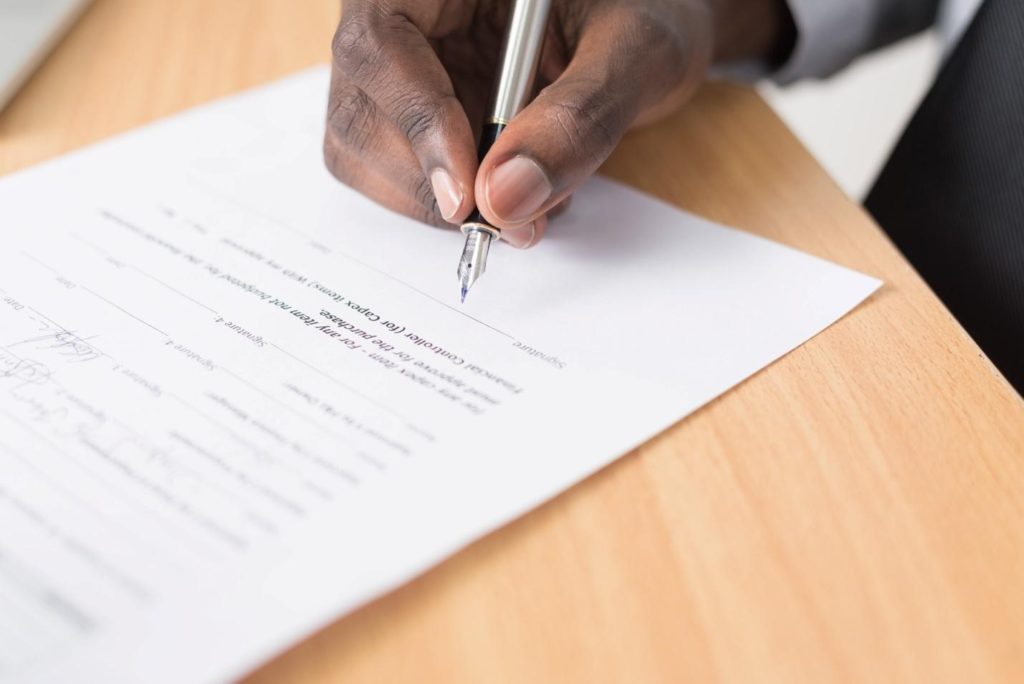At one point in your life, you will likely be involved in an accident. You might be the one at fault, or it might be the other driver’s fault.
If it’s the latter, their insurance company is required to foot the costs associated with any injuries you sustain, and the repair bills required to fix your car. If the car is damaged beyond repair, the at-fault party’s insurer will need to compensate you for its full value to allow you to get a new one.
While this is ideally what’s supposed to happen, you might encounter an instance where the at fault driver’s insurance won’t pay. Some companies drag their feet but eventually settle the claim, while others deny it entirely and refuse to pay. What should you do in such instances? Here’s everything you need to know.
What Is an at Fault Accident
An at fault accident means that the driver in question is responsible for causing it. This could be due to some action they took or failed to take. Some accidents are pretty cut-and-dry when it comes to determining who is to blame and, therefore, “at fault.”
If you’re driving aggressively, for instance, or following the car ahead of you too closely and you end up rear-ending it, you would be considered the at-fault party.
The same applies if you had an accident and you were discovered to be driving while under the influence of an intoxicating substance. There would be significant doubt cast on any testimony you give, effectively pinning you as the at-fault party.
Likewise, failing to obey traffic signs and signals by running a red light or failing to yield would be considered a moving violation. If, as a result, an accident occurred, you would be the at-fault party.
Does a Police Report Say Who Was at Fault
Once a car accident happens, police officers will show up at the scene of the incident to gather information about the events leading up to it. That way, they can prepare a comprehensive police report.
The officers will interview the drivers involved in the accident and any eyewitnesses present for their account of events. It allows them to piece together an accurate account of what transpired.
After the officers decide that they’ve garnered enough information, they’ll submit their report to the department. While it may contain a statement on who appears to have been at fault based on their expert judgment, it’s important to keep in mind that this does not constitute a determination of fault.
It, therefore, does not mean that the individual listed in the report as being responsible for causing the accident will be held responsible for damages in any lawsuit that ensues thereafter. However, the officer may issue them with a citation if they determine that the driver(s) had violated a traffic law.
How Do Insurance Companies Determine Who Was at Fault
Insurers rely on the legal concept of “negligence.” All drivers have a duty of care toward other road users. If you fail to act in a manner that would be considered “reasonable” by a rational person in a similar situation, you would be acting “negligently.” This means that you would be at fault if an accident occurs.
Some insurance companies use “comparative negligence” to determine what percentage of the blame each driver bears in the accident. Others rely on “contributory negligence” to reduce the settlement payouts based on how much a driver’s negligent actions contributed to the accident.
Once a claim is filed with an insurer, the company hands it over to an adjuster to determine who was at fault. Each driver’s insurance company dispatches their respective adjusters to research every aspect of the accident.
It involves speaking with eyewitnesses, examining the damage on each vehicle, analyzing medical reports, and verifying details on the drivers’ insurance policies, such as their coverage amounts.
Once they garner all the information they need, adjusters ultimately determine fault in an accident. Always ensure that you retain an auto accident lawyer before you file your claim with the insurance.
How Long Does an Accident Stay On Your Record
Whether you were involved in an at-fault or not at fault accident, any car insurance claim you were involved with will remain on your record for 3-10 years. The exact duration depends on the state you live in and the severity of the accident in question.
No-fault accidents stay on your record for three years. A minor crash, hit-and-run, and DUI-related accident will remain in your record for 5, 8, and 10 years respectively.
At Fault States vs. No Fault States

Most states in the country use an at-fault system of vehicle insurance. It is based on tort liability, where each insurance company pays for the damages sustained based on the percentage of fault each party bears.
No-fault states, on the other hand, require drivers to have personal injury protection (PIP) insurance to pay for any medical expenses that may arise, regardless of who was at fault in an accident.
The idea behind this system is to minimize the cost of insurance litigation by keeping small claims out of the court system.
The only no-fault states in the country are Utah, Pennsylvania, North Dakota, New York, New Jersey, Minnesota, Michigan, Massachusetts, Kentucky, Kansas, Hawaii, and Florida.
What Next If the At-Fault Driver’s Insurer Won’t Pay
If the at-fault driver’s insurer rejects your claim, there are three options you can explore. On the one hand, if you were in a car accident suing the at fault driver would be one way to recoup your losses. On the other hand, you could have your insurer cover the costs associated with repairing your damaged car.
The third option would be to take a hybrid approach by processing your claim through your insurer, paying the associated deductible, and then suing the other driver in small claims court to recover the deductible you paid.
Get Legal Help For Your Claim
If the at-fault driver’s insurance won’t pay, you’ll need a car accident lawyer to help with your case. Ensure they are well-versed in insurance law to get you the favorable outcome you deserve.
Do you have any legal questions for us? Chat online with a Laws101 attorney right now.
